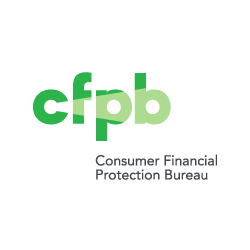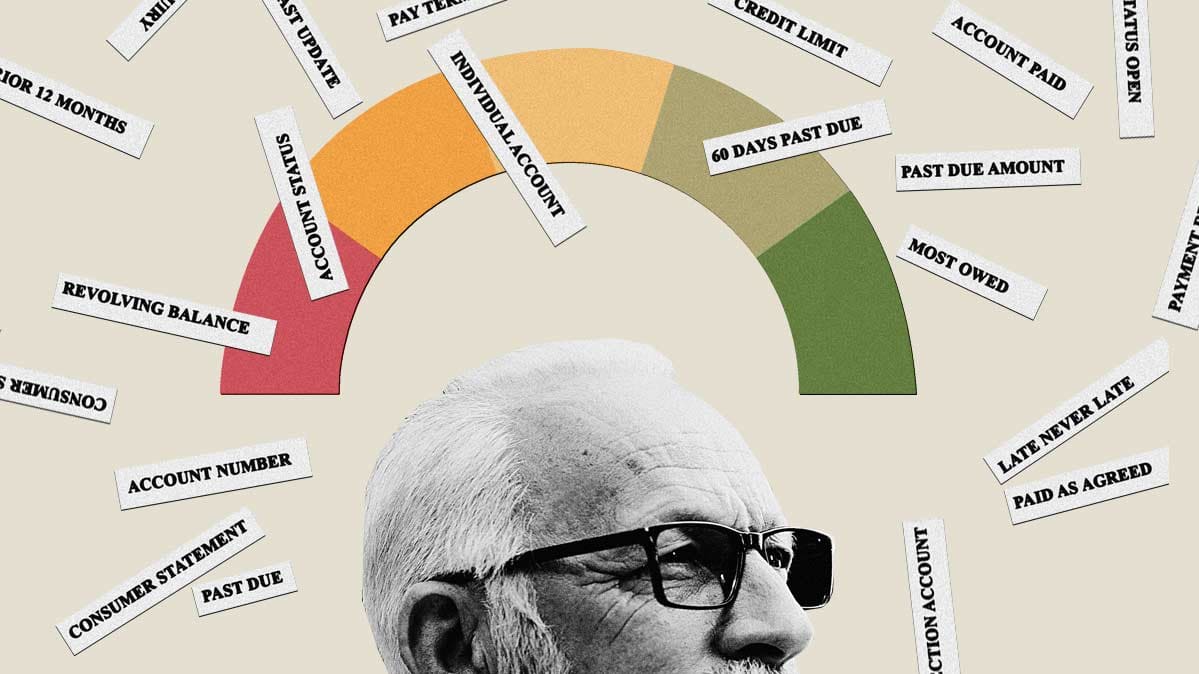 Federal court in Philadelphia rules TransUnion must go to trial
Federal court in Philadelphia rules TransUnion must go to trial
On April 11, 2023, the United State District Court for the Eastern District of Pennsylvania ruled that a class action case on behalf of consumers against TransUnion may proceed to trial for failing to investigate consumer disputes.
In Norman v. TransUnion, Flitter Milz client Duane Norman alleges that TransUnion failed to investigate his two disputes of an inquiry made on his credit report without permission. As well, he claims that TransUnion, as a company practice, chooses to not investigate disputed inquiries which is in violation of the Fair Credit Reporting Act (FCRA).
In August 2020, the Court decided that Mr. Norman’s case should proceed as a class action for all other consumers across the country who disputed inquiries to TransUnion, only to have TransUnion do nothing in response to their disputes.
In Tuesday’s opinion, the court denied TransUnion’s motion to have the case thrown out on summary judgment before trial. The court found that there was enough evidence that TransUnion acted willfully in violation of the FCRA, and that the class of consumers represented by our firm can proceed with their claims for punitive damages at trial.
The court reiterated that inquiries (notations on your credit report that show you applied for credit) can be disputed by consumers and TransUnion is obligated by law to investigate those disputes.
Seek Help from a Fair Credit Reporting Lawyer
If you have an inquiry you don’t recognize on your credit report, you should dispute it and request that the credit bureau perform an investigation of your dispute. If they do not, you may have a case!
 Flitter Milz attorneys are nationally recognized consumer protection lawyers with the experience to evaluate your credit reporting problems.
Flitter Milz attorneys are nationally recognized consumer protection lawyers with the experience to evaluate your credit reporting problems.
To provide a no cost legal evaluation, we will request a current copy of your credit report coming directly from each of the three main bureaus — Transunion, Experian and Equifax. As well, we will need documents supporting your claim.
CLICK HERE: Learn how to Dispute Credit Report Errors Effectively
Pictured above: Flitter Milz Attorneys
Cary Flitter (center), Andy Milz (left), Jody López-Jacobs (right)

 All it takes is someone with the same or similar name, birthdate, address, or other matching identifying information to have a stranger’s record inaccurately mixed with yours. Their DUI, their theft conviction, or their sex offence can then show up on YOUR report. It’s no surprise then that bad background checks for employment, rent, or security clearance can ruin someone’s livelihood and reputation in an instant.
All it takes is someone with the same or similar name, birthdate, address, or other matching identifying information to have a stranger’s record inaccurately mixed with yours. Their DUI, their theft conviction, or their sex offence can then show up on YOUR report. It’s no surprise then that bad background checks for employment, rent, or security clearance can ruin someone’s livelihood and reputation in an instant.
 The Consumer Financial Protection Bureau (CFPB) recently published an advisory warning that
The Consumer Financial Protection Bureau (CFPB) recently published an advisory warning that  More than 90% of prospective employers, landlords, insurance companies and banks use background check data as part of their application process. These companies must have a legally permissible purpose to obtain a copy of a consumer’s background report when evaluating the consumer for credit, insurance, housing, or employment decisions. The consumer is entitled to a copy of the background check report used to evaluate his or her application.
More than 90% of prospective employers, landlords, insurance companies and banks use background check data as part of their application process. These companies must have a legally permissible purpose to obtain a copy of a consumer’s background report when evaluating the consumer for credit, insurance, housing, or employment decisions. The consumer is entitled to a copy of the background check report used to evaluate his or her application. Background reports include information such as, employment history, credit information and legal problems. In some cases, social media accounts may show up. The more data listed in a background check could mean a greater possibility for error. As a result, the consumer could be denied a job, housing, insurance or credit. Just one error on a background report can cause significant harm. Procedures for maintaining and dispensing accurate information are critical. Background reports must ensure proper identification of the applicant, plus accurate data related to the applicant. Disclaimers by background reporting companies do not cure permissible violations. Instead, they could violate a person’s privacy, which is strictly prohibited under the FCRA.
Background reports include information such as, employment history, credit information and legal problems. In some cases, social media accounts may show up. The more data listed in a background check could mean a greater possibility for error. As a result, the consumer could be denied a job, housing, insurance or credit. Just one error on a background report can cause significant harm. Procedures for maintaining and dispensing accurate information are critical. Background reports must ensure proper identification of the applicant, plus accurate data related to the applicant. Disclaimers by background reporting companies do not cure permissible violations. Instead, they could violate a person’s privacy, which is strictly prohibited under the FCRA. When a background check is required, the prospective employer or landlord must obtain written permission from the applicant to request a report. A Disclosure Notice and Authorization form must be filled out and signed by the applicant, then submitted to the background check company. Most authorization forms require the applicant’s full name, date of birth, social security number, current zip code, phone number and email address. Screening for some types of employment may require additional information, such as motor vehicle reports, employment verifications or international criminal checks.
When a background check is required, the prospective employer or landlord must obtain written permission from the applicant to request a report. A Disclosure Notice and Authorization form must be filled out and signed by the applicant, then submitted to the background check company. Most authorization forms require the applicant’s full name, date of birth, social security number, current zip code, phone number and email address. Screening for some types of employment may require additional information, such as motor vehicle reports, employment verifications or international criminal checks. The attorneys at Flitter Milz have extensive experience dealing with violations of the Fair Credit Reporting Act. If a background checking company fails to correct information on your report, and you’ve suffer the loss of a job, rental, or other damages, you may be able to sue the company for money – and your legal fees will be paid by that violating reporting bureau.
The attorneys at Flitter Milz have extensive experience dealing with violations of the Fair Credit Reporting Act. If a background checking company fails to correct information on your report, and you’ve suffer the loss of a job, rental, or other damages, you may be able to sue the company for money – and your legal fees will be paid by that violating reporting bureau.  Credit reports must be kept accurate.
Credit reports must be kept accurate. The website, annualcreditreport.com, is the quickest way to access reports. By writing to the three main credit bureaus – Transunion, Experian and Equifax — to
The website, annualcreditreport.com, is the quickest way to access reports. By writing to the three main credit bureaus – Transunion, Experian and Equifax — to  After reviewing your credit report for accuracy, if there are errors listed you may need to write to the lender, creditor, collection agency or other type of data furnisher to request updated information on your account. Obtaining verification of your account status from these companies can provide useful evidence when your dispute is investigated by the credit bureau and evaluated for accuracy.
After reviewing your credit report for accuracy, if there are errors listed you may need to write to the lender, creditor, collection agency or other type of data furnisher to request updated information on your account. Obtaining verification of your account status from these companies can provide useful evidence when your dispute is investigated by the credit bureau and evaluated for accuracy. Although the credit bureaus accept disputes online and by phone, consumers must be cautious. These methods of disputing could present problems.
Although the credit bureaus accept disputes online and by phone, consumers must be cautious. These methods of disputing could present problems. Dispute letters should be sent to the credit bureaus by Certified Mail, Return Receipt. Be sure to keep a copy of the dispute letter and all supporting documents enclosed with your letter, along with all mailing receipts from the post office.
Dispute letters should be sent to the credit bureaus by Certified Mail, Return Receipt. Be sure to keep a copy of the dispute letter and all supporting documents enclosed with your letter, along with all mailing receipts from the post office. The Fair Credit Reporting Act
The Fair Credit Reporting Act  Flitter Milz is a consumer protection law firm that addresses accuracy and privacy violations of the Fair Credit Reporting Act. If there are uncorrected errors on a consumer’s credit reports, the consumer’s legal rights may have been violated. The attorneys at Flitter Milz evaluate consumer’s credit reports for errors and identify steps to correct them. If a consumer’s credit has been damaged, there could be a violation of the law.
Flitter Milz is a consumer protection law firm that addresses accuracy and privacy violations of the Fair Credit Reporting Act. If there are uncorrected errors on a consumer’s credit reports, the consumer’s legal rights may have been violated. The attorneys at Flitter Milz evaluate consumer’s credit reports for errors and identify steps to correct them. If a consumer’s credit has been damaged, there could be a violation of the law.  Consumer credit is when credit is advanced to a consumer for the purchase of personal or household goods or services. The system for extension of credit allows consumers to borrow money, or incur debt, and to defer repayment of that money over time.
Consumer credit is when credit is advanced to a consumer for the purchase of personal or household goods or services. The system for extension of credit allows consumers to borrow money, or incur debt, and to defer repayment of that money over time. Having
Having  Consumers may explore options to finance the purchase by contacting banks, credit unions and financial institutions. The terms for borrowing money may vary from one lender to another. After submission of a credit application, lenders take steps to evaluate the borrower’s creditworthiness. Typically, a credit application triggers a
Consumers may explore options to finance the purchase by contacting banks, credit unions and financial institutions. The terms for borrowing money may vary from one lender to another. After submission of a credit application, lenders take steps to evaluate the borrower’s creditworthiness. Typically, a credit application triggers a  Borrowers must be prepared for the lender to approve or
Borrowers must be prepared for the lender to approve or  A credit reference is one of the methods lenders and service providers use to determine a borrower’s creditworthiness. Credit references can include your bank, previous landlords, employers, or companies whose bills you’ve paid regularly. Depending on the type of application, it is best to submit the best reference for the situation. Typically, this person or company would improve the borrower’s chances for approval for the type of loan that is sought.
A credit reference is one of the methods lenders and service providers use to determine a borrower’s creditworthiness. Credit references can include your bank, previous landlords, employers, or companies whose bills you’ve paid regularly. Depending on the type of application, it is best to submit the best reference for the situation. Typically, this person or company would improve the borrower’s chances for approval for the type of loan that is sought. 
 In online complaints, Titan Solar has been accused of engaging in predatory marketing and of misrepresenting facts. Sometimes, Titan Solar is accused of not informing the customer that installation is conditioned upon agreeing to a decades-long loan or power purchase agreement, and the contract might be hidden from the consumer. Titan Solar’s finance company partner may also pull your
In online complaints, Titan Solar has been accused of engaging in predatory marketing and of misrepresenting facts. Sometimes, Titan Solar is accused of not informing the customer that installation is conditioned upon agreeing to a decades-long loan or power purchase agreement, and the contract might be hidden from the consumer. Titan Solar’s finance company partner may also pull your  some other legitimate business purpose for pulling your credit. Often, during the process of applying for new credit or utilities, or interviewing with a prospective employer or landlord, there may be a request to access the consumer’s credit file. The consumer must provide written permission for his or her credit file to be accessed.
some other legitimate business purpose for pulling your credit. Often, during the process of applying for new credit or utilities, or interviewing with a prospective employer or landlord, there may be a request to access the consumer’s credit file. The consumer must provide written permission for his or her credit file to be accessed. Lenders evaluate the number of hard inquiries that appear on a consumer’s credit reports during the credit application review process. Although hard inquiries represent one factor in the calculation of credit scores, too many hard inquiries in a short time could impact scores negatively and jeopardize the approval of a new credit application.
Lenders evaluate the number of hard inquiries that appear on a consumer’s credit reports during the credit application review process. Although hard inquiries represent one factor in the calculation of credit scores, too many hard inquiries in a short time could impact scores negatively and jeopardize the approval of a new credit application. The three main national credit bureaus — Trans Union, Equifax, and Experian — have agreed to make changes in the reporting of medical debt. As of July 1, 2022, settled medical debt that would normally remain on credit reports for up to 7 1/2 years should come off the report. As a result, consumers may see an increase in their credit score, a benefit which can open doors to borrowing at more favorable rates for housing, loans and credit cards.
The three main national credit bureaus — Trans Union, Equifax, and Experian — have agreed to make changes in the reporting of medical debt. As of July 1, 2022, settled medical debt that would normally remain on credit reports for up to 7 1/2 years should come off the report. As a result, consumers may see an increase in their credit score, a benefit which can open doors to borrowing at more favorable rates for housing, loans and credit cards. Let’s face it. Most medical debt is incurred unexpectedly. Patients visit doctors or seek medical treatment because they are sick or have had an injury. Due to the high cost of healthcare, many Americans have difficulty paying expensive medical bills to hospitals, physicians, labs and other medical providers.
Let’s face it. Most medical debt is incurred unexpectedly. Patients visit doctors or seek medical treatment because they are sick or have had an injury. Due to the high cost of healthcare, many Americans have difficulty paying expensive medical bills to hospitals, physicians, labs and other medical providers. Unfortunately, unpaid medical debt may be forwarded to a collection agency or law firm collector. Once in collection, negative tradelines appear on credit reports and credit scores may drop. Consumers then begin to feel the effects of a negative credit rating.
Unfortunately, unpaid medical debt may be forwarded to a collection agency or law firm collector. Once in collection, negative tradelines appear on credit reports and credit scores may drop. Consumers then begin to feel the effects of a negative credit rating. Attorney Andy Milz states, “Here at Flitter Milz, PC, we strongly believe medical debt should not be reported at all. Unlike a mortgage, credit card, or car loan, medical debt does not represent a financial choice, but is often a result of an emergency or hardship. And, even for the majority of consumers with some form of health insurance, getting the insurance company to pay the bill in its entirety is always a challenge. Inability to pay medical debts should not weigh down a person’s creditworthiness. Unfortunately, until now, health care providers, medical debt collectors, and the credit bureaus have been allowed to report this negative information.”
Attorney Andy Milz states, “Here at Flitter Milz, PC, we strongly believe medical debt should not be reported at all. Unlike a mortgage, credit card, or car loan, medical debt does not represent a financial choice, but is often a result of an emergency or hardship. And, even for the majority of consumers with some form of health insurance, getting the insurance company to pay the bill in its entirety is always a challenge. Inability to pay medical debts should not weigh down a person’s creditworthiness. Unfortunately, until now, health care providers, medical debt collectors, and the credit bureaus have been allowed to report this negative information.”
 Read more below:
Read more below: There are a variety of reasons why credit files get mixed. With the amount of information handled by creditors and the credit bureaus, mistakes are bound to happen. For example, information from an application may be keyed into a file incorrectly. Digits on a social security number may be transposed, or a name misspelled from an application. Those errors can pass from the original creditor through to the credit bureau. Or, the credit bureau mistakenly may combine credit files of two or more different consumers into one file. Unfortunately, the errors may not be discovered until the consumer reviews his or her report…usually after applying for new credit.
There are a variety of reasons why credit files get mixed. With the amount of information handled by creditors and the credit bureaus, mistakes are bound to happen. For example, information from an application may be keyed into a file incorrectly. Digits on a social security number may be transposed, or a name misspelled from an application. Those errors can pass from the original creditor through to the credit bureau. Or, the credit bureau mistakenly may combine credit files of two or more different consumers into one file. Unfortunately, the errors may not be discovered until the consumer reviews his or her report…usually after applying for new credit. If you believe someone else’s information has been mixed with or merged onto your credit file, a
If you believe someone else’s information has been mixed with or merged onto your credit file, a  The reporting bureau has 30 days to respond to your written dispute. If errors are not corrected, you may need to send a second dispute to that bureau, and possibly provide additional documentation. Or, you may need to write to the underlying creditor, explain the problem and request corrected information be sent to the reporting bureau.
The reporting bureau has 30 days to respond to your written dispute. If errors are not corrected, you may need to send a second dispute to that bureau, and possibly provide additional documentation. Or, you may need to write to the underlying creditor, explain the problem and request corrected information be sent to the reporting bureau. The
The  Understand credit scores and credit reports
Understand credit scores and credit reports What is a credit score?
What is a credit score? credit and obtain copies of his or her credit reports and credit scores.
credit and obtain copies of his or her credit reports and credit scores. Transunion, Experian and Equifax are the three main credit reporting bureaus. These bureaus provide credit reports which list specific information about a consumer’s credit activity and payment history. Lenders use these reports to help determine whether to extend credit or not. As well, other businesses such as insurance companies and utilities, or prospective employers and landlords, may request access to a consumer’s report for use in making decisions about you.
Transunion, Experian and Equifax are the three main credit reporting bureaus. These bureaus provide credit reports which list specific information about a consumer’s credit activity and payment history. Lenders use these reports to help determine whether to extend credit or not. As well, other businesses such as insurance companies and utilities, or prospective employers and landlords, may request access to a consumer’s report for use in making decisions about you.  Do you have errors on your credit reports? Problems getting credit?
Do you have errors on your credit reports? Problems getting credit? The hard facts about Repossession.
The hard facts about Repossession. When the borrower
When the borrower  Send Effective Disputes
Send Effective Disputes
 Consumers are entitled to
Consumers are entitled to  If you notice errors on your credit reports, you must
If you notice errors on your credit reports, you must 





